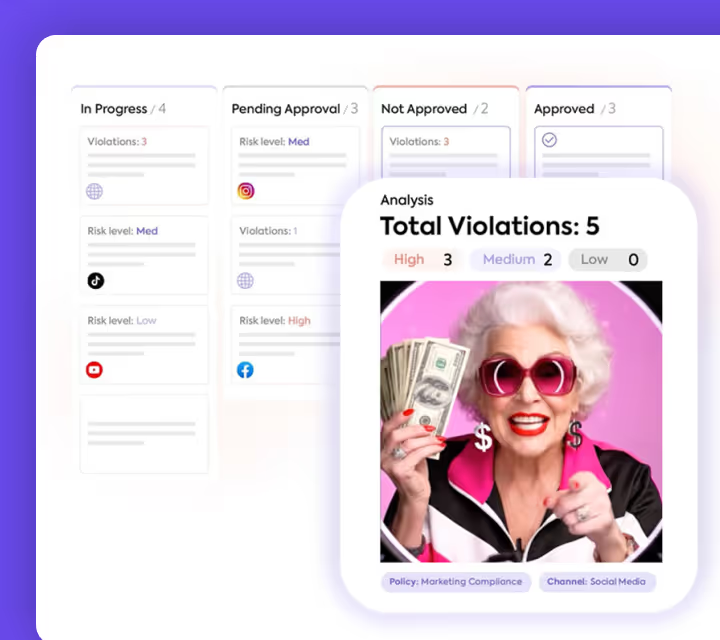Regulatory compliance is one of the most important responsibilities for UK asset managers. The Financial Conduct Authority (FCA) enforces strict rules designed to protect investors, maintain market integrity, and ensure fair treatment of clients. A well-structured FCA compliance checklist is vital for meeting these obligations consistently.
This guide covers the core elements of asset manager compliance UK, offers practical FCA audit preparation tips, and outlines the steps in an effective FCA onboarding checklist. By following these recommendations, asset managers can reduce risk, avoid costly penalties, and maintain trust with clients and regulators.
Understanding FCA Compliance for Asset Managers
The FCA regulates more than 50,000 financial services firms in the UK. For asset managers, compliance is not optional—it is a legal and operational necessity.
Why FCA Compliance Is Critical
- Protects Reputation – Investors expect their funds to be handled by a credible, regulated institution.
- Avoids Enforcement Action – Breaches can lead to significant fines and restrictions on business activity.
- Maintains Client Confidence – Demonstrates transparency and commitment to ethical practices.
- Supports Business Stability – Reduces the risk of operational disruptions caused by regulatory intervention.
Compliance is not a one-off task. It requires ongoing monitoring, continuous training, robust documentation, and regular updates to processes as regulations evolve.
Building an FCA Compliance Framework
A compliance framework is the foundation of all FCA-related activities within an asset management firm. It provides a structured approach for meeting regulatory requirements daily.
Core framework components:
- Governance and Oversight – Assign clear responsibilities to compliance officers and senior leaders for oversight and adherence to all relevant rules.
- Documented Policies and Procedures – Keep all compliance-related documents up to date and accessible, ensuring each criterion is met accurately.
- Compliance Calendar – Maintain a schedule of filing dates, FCA reporting deadlines, and policy review points to avoid overlooked obligations.
- Staff Training – Deliver regular sessions on FCA principles, security protocols, and firm-specific compliance processes.
- Monitoring and Testing – Use software to track performance against compliance standards and identify potential breaches early through dynamic scrutiny.
Firms that rely on manual processes risk missing key compliance triggers. Automated tools can monitor activity in real time, generate alerts, and create a detailed audit trail.
Stay ahead of FCA requirements with Sedric’s real-time compliance monitoring. Learn more at Sedric.ai
FCA Onboarding Checklist
Onboarding is one of the most sensitive points in the client relationship. FCA rules require asset managers to conduct thorough checks before managing a client’s assets. A consistent FCA onboarding checklist reduces the risk of financial crime and ensures all regulatory obligations are met from day one.
Key onboarding steps:
- Know Your Customer (KYC) – Verify identity using approved documents.
- Anti-Money Laundering (AML) Screening – Check clients against sanctions, watchlists, and politically exposed person (PEP) databases.
- Risk Profiling – Conduct an in-depth risk assessment to determine financial status, investment goals, and tolerance.
- Disclosure and Consent – Provide clear, FCA-compliant documentation outlining services, fees, and risks.
- Recordkeeping – Store all onboarding data in a secure, accessible format to meet FCA Volume Assessment needs.
Best practices for asset manager compliance UK onboarding:
- Standardise documentation to ensure uniformity across client files.
- Use automated systems to streamline KYC and AML checks for faster response times.
- Securely store onboarding data in systems compliant with FCA data retention rules.
Automation not only saves time but also provides consistent and reliable compliance evidence for future audits. Streamline your FCA onboarding process with Sedric’s compliance automation solutions. Visit Sedric.ai to see how.
FCA Audit Preparation
The FCA can review a firm’s compliance systems at any time. Preparing for an FCA audit means having all relevant policies, records, and evidence ready to present without delay.
Audit preparation checklist:
- Review Internal Policies – Ensure they reflect current FCA requirements and mitigation strategies.
- Organise Documentation – Keep contracts, investment records, and client communications well-structured for swift scrutiny.
- Conduct Internal Audits – Test compliance processes before the FCA does.
- Train Staff – Employees should know how to answer regulator questions and present required information accurately.
Areas the FCA often examines:
- Controls to prevent financial crime.
- Client asset segregation and safeguarding.
- Accuracy of disclosures about fees and risks.
- Complaint handling procedures.
Mock audits can reveal weaknesses before they become regulatory issues. Having a central repository for compliance documentation shortens preparation time and builds confidence during inspections.
Simplify FCA audit preparation with Sedric’s compliance management system. Explore solutions at Sedric.ai.
Ongoing FCA Compliance Monitoring
Compliance requirements do not end after onboarding or an audit. FCA expectations demand continuous oversight of client activity, operational processes, and regulatory changes.
Best practices for ongoing monitoring:
- Regulatory Updates – Subscribe to FCA bulletins and adjust policies accordingly.
- Transaction Monitoring – Identify suspicious or unusual patterns immediately.
- Complaint Tracking – Record complaints and document resolution steps.
- Periodic Risk Reviews – Update client profiles and reassess product suitability as a priority task.
Technology allows asset managers to monitor multiple risk indicators simultaneously. Real-time alerts reduce the time between detection and corrective action, lowering exposure to regulatory breaches.
Reporting and Recordkeeping
Accurate and accessible records are a cornerstone of FCA compliance. The regulator requires firms to maintain certain documents for several years.
Effective recordkeeping practices:
- Store files securely with controlled user access.
- Maintain an audit trail for all client communications and transactions.
- Use cloud-based systems for easy retrieval and secure backups.
- Keep KYC and AML documentation complete and up to date in accordance with each compliance criterion.
Well-maintained records provide quick answers to FCA queries and support smoother audits. They also demonstrate operational professionalism to clients.
Training and Compliance Culture
Even the most comprehensive FCA compliance checklist is ineffective if staff are unaware of their responsibilities. Training should be regular, practical, and relevant to each role within the organisation.
Strong training programme elements:
- Detailed coverage of FCA principles and conduct rules.
- Real-world examples of compliance successes and failures.
- Annual refresher courses with updated scenarios and regulations.
Compliance culture starts at the top. Senior management should actively participate in training, lead by example, and ensure the team understands the consequences of non-compliance. A culture of compliance turns regulatory obligations into part of the daily workflow rather than a reactive process.







